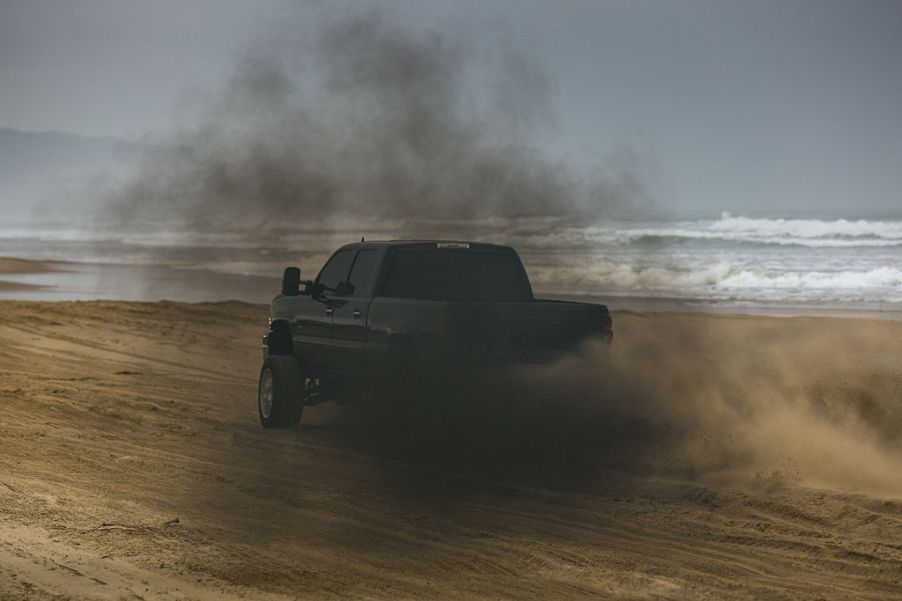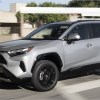
Rolling Coal Just Makes People Hate Pickup Trucks
Diesel pickup trucks have a problem. Not with technology—Ram just announced their latest half-ton diesel options—but with image. Even before Volkswagen’s diesel emissions scandal, diesel engines were far from popular in the U.S. This is despite diesel engines’ better fuel efficiency and torque compared to gasoline engines.
Diesels had a reputation for excessive noise. The soot they produced was arguably the best visual metaphor for human-impacted climate change. With new emissions requirements, diesel exhaust fluid, and better filtration, all that changed.
But one group of diesel owners appear to want to reverse all the progress. They sneer at emission regulations, and seemingly live to troll and taunt more environmentally-considerate road-goers. They’re the ones who’re rolling coal, and they need to stop.
What is Rolling Coal?
If you heard or saw a modern diesel engine running next to a gasoline one, it’d be hard to tell the two apart. Modern diesels are quiet and run with sophisticated engine management software. They have particulate filters and urea (or other DEF) injection to combat soot. NOx emissions—which cause acrid smog and acid rain—are curtailed with modern catalysts and exhaust-gas recirculation. All these tools work together to make sure it doesn’t look like your new pickup truck is cosplaying as an 18th-century London chimney.
But some owners, seeking more horsepower or torque, fiddle with these tools. They remove the catalytic converter. They screw with the engine software to change boost pressure or ignition timing, among other things. Then, when they stomp on the throttle, black smoke gushes out the tailpipe.
Originally, this occurred mostly in truck pulls, truck races where the goal was maximum pulling power. The engine mods needed to maximize performance had the side effect of thick, black smoke. On the racetrack, engine and exhaust modifications are nothing new, nor illegal. And, if confined to a racing environment, rolling coal wouldn’t really be an issue.
Problem is, some individuals took it on public roads. And they started messing with people.
Public Trolling
In the wake of increased automotive emission regulation, a certain subset of diesel truck drivers started to rebel. They’d look for a passing hybrid, and gun it down the road, leaving the hybrid driver choking on soot. If a Prius wasn’t there, they’d suffocate cyclists, or in some cases, even pedestrians.
Video after video appeared on YouTube. The LA Times ran an article, as did The New York Times. Many of the creations of the Discovery Network’s Diesel Brothers rolled coal. Coal-rolling trucks were named things like ‘Public Enemy’, and featured ‘Prius repellant’ stickers.
Impacts of Rolling Coal
Besides the obvious cloud-of-soot-in-face? Defeating emissions controls results in (duh) increased emissions. In addition to environmental effects such as acid rain from NOx, other airborne exhaust pollutants are linked to asthma in children and fetuses, cancer, and impaired cognitive function. You roll coal, your brain no work no good.
Is Rolling Coal Illegal?
For a long time, explicitly, no. Since rolling coal does require tampering with emissions controls, it does violate the Clean Air Act, and is a felony. However, you have to a) be caught doing it; b) it doesn’t apply to heavy-duty vehicles over 6000 lbs; and, c) it doesn’t cover rolling coal specifically. When The New York Times ran its rolling coal article in 2016, only New Jersey had a law on record that went beyond the federal regulations. As of this writing, only Utah, Colorado, and Maryland have joined the list of states with coal-rolling laws.
Furthermore, the Trump administration drastically kneecapped the Environmental Protection Agency where rolling coal is concerned. Penalties for air violations dropped drastically, and companies that sold emissions defeat devices were still permitted to sell them for years afterward.
Rolling It Back
However, recent developments have signaled increased pressure on coal rollers. The Sierra Club reported that in March of 2019, federal district court Chief Judge Robert Shelby ruled against three companies—including the Diesel Brothers—in a suit made by the Utah Physicians for a Healthy Environment. The plaintiffs had argued that, although their devices did violate the Clean Air Act, the increase in subsequent pollution was ultimately negligible. While they are arguably correct (even some environmental activist groups agree), Chief Judge Roberts found that Utah citizens do indeed have standing to sue over even such emissions. This gives legal precedence for people affected by rolling coal—such as the very same cyclists and hybrid owners who have been smoked.
In addition, the Texas Commission on Environmental Quality has a website where ordinary citizens can make a report about any Texas-license-plated vehicle emitting excessive smoke.
Rolling coal isn’t an issue that will go away any time soon. Shaming coal rollers and diesel owners will just make them smoke out people more. It will require both a federal and state government push to legislate and enforce emissions rules. Contact your local representative, and help get the ball rolling on this.
In the meantime, coal rollers? Just stop. It isn’t cool. It isn’t edgy. It’s just wrong.


